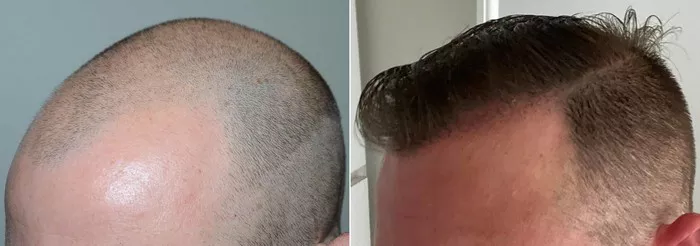Hair transplantation has become a popular solution for individuals seeking to address hair loss and regain their confidence. However, it’s crucial to understand that not everyone is an ideal candidate for this procedure. Before considering a hair transplant, individuals should be aware of the factors that may exclude them from undergoing the surgery. In this article, we will explore who should refrain from getting a hair transplant.
1. Individuals with Unrealistic Expectations
Before undergoing any cosmetic procedure, it’s essential for individuals to have realistic expectations. Hair transplantation can significantly improve the appearance of thinning or receding hair, but it’s not a miracle cure. Those expecting an overnight transformation or an entirely new head of hair may be disappointed with the results. It’s vital for candidates to have a clear understanding of the achievable outcomes to avoid dissatisfaction post-surgery.
2. People with Unstable Health Conditions
Individuals with unstable health conditions may not be suitable candidates for hair transplantation. Conditions such as uncontrolled diabetes, heart problems, or autoimmune diseases can affect the healing process and increase the risk of complications during and after the surgery. It is crucial for potential candidates to undergo a thorough medical examination and consult with their healthcare providers before considering a hair transplant.
3. Those with Progressive Hair Loss
Hair transplantation is most effective for individuals experiencing stable patterns of hair loss. If an individual has active and progressive hair loss, undergoing a hair transplant may not be advisable. The surgeon needs a stable area of donor hair to harvest and transplant, and if hair loss continues, the transplanted hair may not provide the desired long-term results. It is recommended that individuals with progressive hair loss explore other non-surgical options until their hair loss stabilizes.
4. Individuals with Insufficient Donor Hair
A successful hair transplant relies on having an adequate supply of donor hair, typically from the back or sides of the head. Individuals with insufficient donor hair may not be suitable candidates for the procedure. The surgeon needs to assess the donor area’s density and quality to ensure there are enough viable hair follicles for transplantation. If the donor area is limited, the surgeon may advise against a hair transplant or explore alternative solutions.
5. Pregnant or Breastfeeding Women
Pregnant or breastfeeding women are generally advised to postpone elective cosmetic procedures, including hair transplants. Hormonal changes during pregnancy and breastfeeding can affect hair growth patterns, and undergoing a hair transplant during these periods may not yield predictable results. It is advisable for women to wait until their hormonal levels stabilize before considering a hair transplant.
6. Individuals Prone to Keloid Scarring
Keloid scarring is an abnormal healing response that results in raised, thickened scars. People who are prone to keloid formation may not be ideal candidates for hair transplantation, as the procedure involves making small incisions to transplant hair follicles. The risk of developing keloid scars in the donor and recipient areas may be higher in individuals with a history of keloid formation.
See Also: The Hair Transplant Surgery: A Guide to Post-Procedure Hair Shedding
Conclusion
While hair transplantation has proven to be a successful and transformative solution for many individuals experiencing hair loss, it is not suitable for everyone. Individuals with unrealistic expectations, unstable health conditions, progressive hair loss, insufficient donor hair, pregnant or breastfeeding women, and those prone to keloid scarring should carefully consider whether a hair transplant is the right option for them. Consulting with a qualified and experienced hair transplant surgeon is crucial to assess individual suitability and explore alternative solutions when necessary. Making an informed decision based on realistic expectations and a thorough understanding of one’s health and hair loss situation is key to achieving satisfactory and lasting results from a hair transplant.


